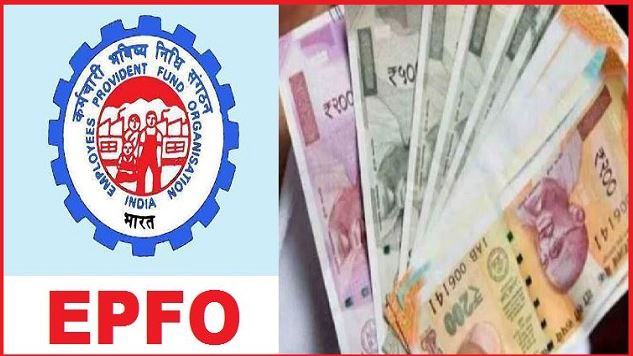The Government of India has brought the contribution to EPF in the tax net for the purpose of promoting the National Pension Scheme (NPS) in the country, so that the trend of people increases towards NPS.
Employee Provident Fund Organization i.e. EPFO does the work of providing social security to the common man in the country . It is the largest such organization in the world. It works to manage the provident fund of the people.
The money deposited in EPF was not taxed earlier, but now it comes under tax net. Now there is a provision of tax at the time of investment, interest and withdrawal of money. Let’s know about it…
What is the stage of investment, interest and withdrawal, how much was the tax on it?
- Investment Stage: When you make any investment in your EPF account, you can claim deduction on employee’s contribution under Section 80C of the Income Tax Act. Under Section-80C, a maximum savings of Rs 1.5 lakh can be claimed; While your employer’s contribution, which is up to 12 percent of your salary, is exempted without any limit.
- Interest bearing or accrual stage: When interest is declared on your total balance. In this, the balance is calculated according to the compound interest.
- Maturity Stage: When the amount is withdrawn from EPF. However, some limits have been set for this.
The Government of India has brought the contribution to EPF in the tax net for the purpose of promoting the National Pension Scheme (NPS) in the country, so that the trend of people increases towards NPS.
Tax on EPF contribution
The government has not made any change in the exemption given to the contribution of the employee in EPF under Section-80C of Income Tax.
However, the employer’s contribution has now been brought under the tax net. There is a tax exemption on depositing 12 percent of the employee’s salary in the EPF account. But now if it exceeds a limit, then tax will be levied.
After April 1, 2020, if more than Rs 7.5 lakh is deposited annually by the employer in an employee’s EPF account, MPS or any other pension fund in the country, then it will be counted in the employee’s ‘income from salary’ and There will be tax on this.
Tax on declaration of interest
If an employee contributes Rs 2.5 lakh every year to his EPF account, then the interest earned on it will be tax-free. On the other hand, if his contribution is more than this limit, then the interest received on the amount of more than Rs 2.5 lakh will come under the ambit of tax. This rule is applicable from 1 April 2022.
Similarly, the interest received on the amount up to Rs 7.5 lakh deposited by the employer is tax free. But any interest, dividend etc. coming on the amount above this will come under the ambit of tax.
Tax on withdrawing money from EPF
If you withdraw EPF money after working continuously for 5 years, then there will be no tax on your contribution and interest earned. But if you withdraw money before 5 years, then you may have to pay tax according to these conditions…
- In this situation, the employer’s contribution and the interest earned thereon will be taxed. This will be part of your ‘income from salary’.
- If you have taken tax exemption under Section-80C while depositing money in EPF. Then if you withdraw before 5 years, your contribution will be taxed according to ‘income from salary’ only.
- Apart from this, the interest received on your EPF contribution will also be taxable under the head ‘Income from other sources’.
- The Regional Commissioner of EPFO can deduct TDS up to 10 percent on your total withdrawn amount, if you have withdrawn more than Rs 50,000.






